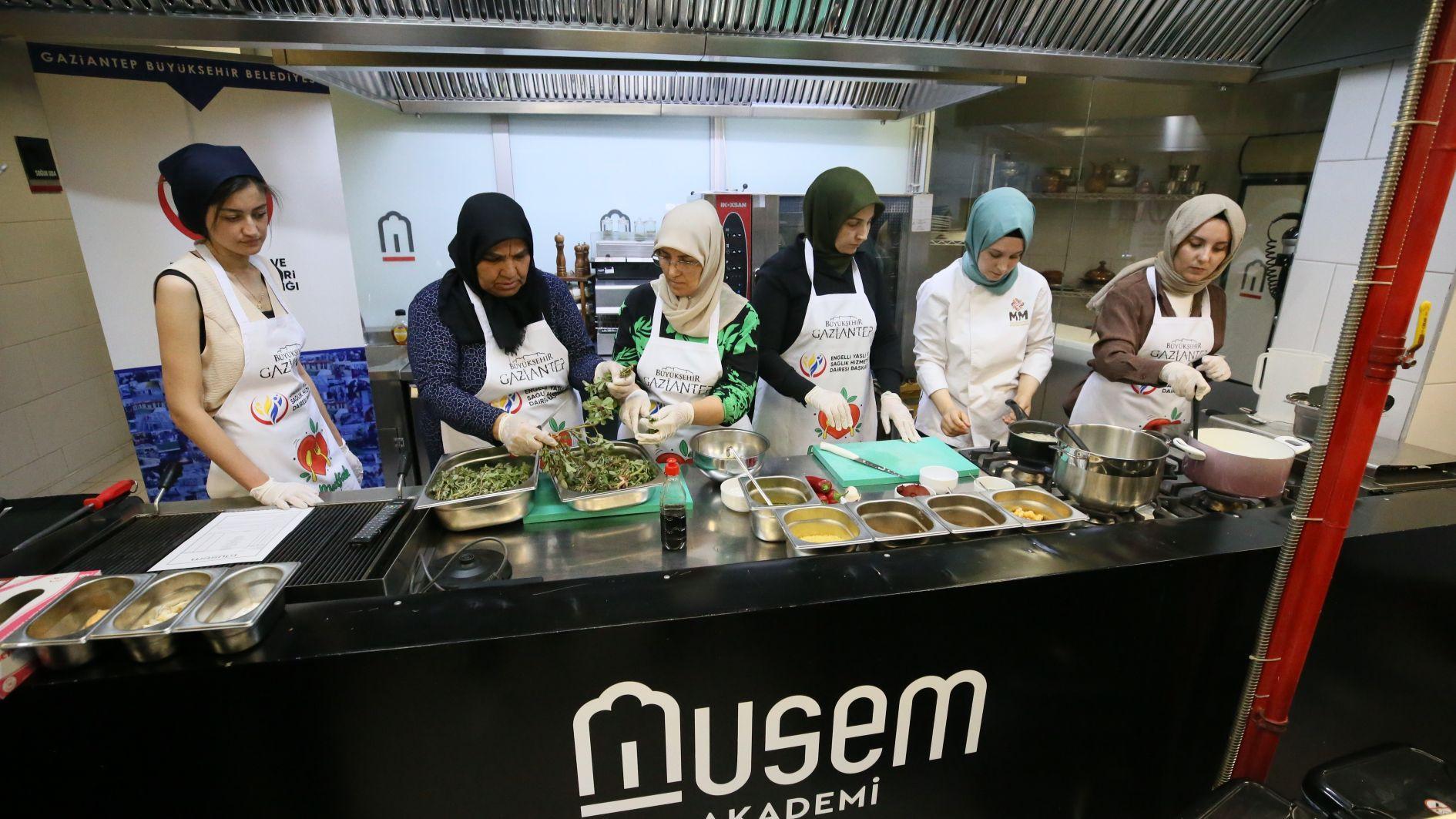
In Türkiye’s culinary capital of Gaziantep, known for its rich and indulgent flavors, a new initiative is turning the southern city’s traditional recipes into healthier versions as part of a broader country-wide effort to combat obesity.
The municipality’s “Fit Kitchen Workshop” is offering a unique approach to combat the issue by teaching residents how to prepare lighter versions of common household recipes — without sacrificing taste.
Held once a week, the hands-on classes welcome participants enrolled in the city’s obesity camp program. There, residents learn how to cook regional delicacies with fewer calories, guided by expert dietitians and chefs.
The workshop has been running for nearly two years and has already reached around 360 individuals, many of whom achieved significant weight loss. One of them is Serpil Deniz, who said she lost 30 kilograms over a year and a half through what she learned in the program.
“I discovered how to make my meals healthier. I realized I needed to avoid sugar and bread,” Deniz said. “Now, I even measure my use of ingredients like tomato paste and black pepper. I’ve passed this knowledge to my daughter too.”
Dietitian Esra Merve Öztürk, who oversees the program, emphasized that the goal is not only to support short-term weight loss but also to help people adopt sustainable habits.
“We monitor our participants regularly every two weeks,” Öztürk explained. “Instead of giving out diet plans, we try to build lasting habits. We experiment with healthy menus and recipes they can recreate at home. Our ultimate goal is to spread awareness through families — especially mothers — so they can pass on these healthy practices.”
Öztürk also pointed out that Gaziantep’s culinary heritage is not at odds with a healthy lifestyle. “We have a very rich cuisine. It’s full of both plant-based and animal proteins. We want Gaziantep to be known not only for delicious food but also for healthy eating,” she said. “Obesity can stem from many factors including genetics and inactivity, but portion control is key.”
Türkiye’s Ministry of Health recently launched a nationwide campaign to address obesity, with Body Mass Index (BMI) screenings now being conducted through mobile health teams, who take measurements in public areas to identify individuals at risk.
Those classified as overweight are being referred to state-run health and lifestyle centers for dietary counseling and regular monitoring.
BMI is a widely used indicator that calculates body fat based on an individual’s height and weight. Obesity, defined as having a BMI of 30 or more, is considered a chronic condition. Experts highlight that while genetic and environmental factors play a role, poor dietary and portion sizes are among the leading contributors.